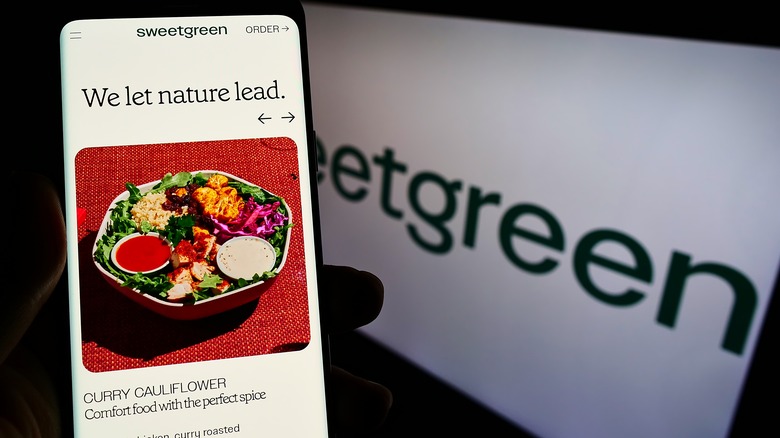Lawsuit Accuses Sweetgreen Of Violating Americans With Disabilities Act
In the latest of a surprisingly long chain of class action lawsuits against the fast-casual salad chain, Sweetgreen is facing a violation for its allegedly unlawfully discriminatory website. The proliferating dominance and constant evolution of the new digital age mean defining accessibility must be an ongoing conversation between businesses and consumers. According to the Americans with Disabilities Act (ADA), which was passed in 1990, "Inaccessible web content means that people with disabilities are denied equal access to information. An inaccessible website can exclude people just as much as steps at an entrance to a physical location."
Plaintiff Ali Colak filed the suit against Sweetgreen, Inc. in New York federal court earlier this week. According to the class action suit, Sweetgreen is being sued because its website is a quagmire of virtual hurdles like missing alt-text, incorrectly formatted lists, and unannounced pop-ups, all of which interfere with text-to-speech screen reader technologies used by blind or visually impaired people to access the web. Other prominent online food retailers, including Outback Steakhouse, Domino's Pizza, Texas Roadhouse, Chick-fil-A, P.F. Chang's, Olive Garden, and Papa John's, have all been sued in the past for similar ADA violations. Per the suit, Colak, who is blind, also accuses Sweetgreen of violating The New York City Human Rights Law.
The salads may be fresh, but the policies are allegedly not
This isn't the first time Sweetgreen has been sued for this kind of problem. Back in 2016, two plaintiffs (both of whom were blind) filed multiple informal complaints over a full year to Sweetgreen informing the company of its website and mobile app's barriers to customer accessibility, yet Sweetgreen failed to alter or improve its platforms to rectify the issue. According to a January 2017 press release, Farmer v. Sweetgreen, Inc. was settled with Sweetgreen agreeing to "remedy these accessibility barriers by March 31, 2017, to conform to, at minimum, the Web Content Accessibility Guidelines Level A and AA Success Criteria ('WCAG2.0AA'), and to maintain accessibility." The settlement also established an online outlet for consumers to report any further accessibility issues in the future.
Accessibility isn't the only area where Sweetgreen has found itself in legal hot water. Last year alone, the salad chain was the center of two separate high-profile lawsuits — once for trademark infringement against Chipotle and once for a much more serious allegation, employee discrimination and harassment, that cited multiple store locations. Time will tell whether Sweetgreen will be able to clean up its act (and website and app) to keep its name out of headlines, or at least start receiving press primarily for its food.

